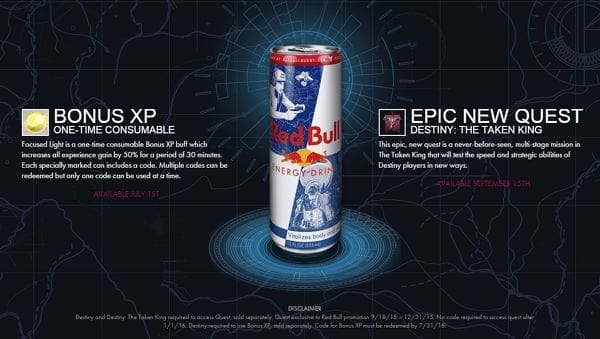Given the sheer size of the video game industry, it would be safe to assume that the corporate side of gaming typically flies under the radar of the average consumer. After all, cool trailers of upcoming games will always attract more attention than someone getting fired or some company getting acquired. Recently, however, virtually everyone was surprised by the unexpected news that Bungie, the once renowned developer behind the Halo and Destiny series, left Activision, a decidedly infamous publisher that has some rather shady practices.
Long story short, Bungie will no longer be under Activision's thumb for the foreseeable future. As such, Bungie will retain the publishing rights to Destiny. In addition, Bungie will theoretically be able to develop and release future Destiny games in whatever way they see fit. However, it would also be a reasonable assumption that Bungie will lose access to Activision's significant pool of resources. Things like funding and technical assistance from supporting studios (i.e. for a PC port) immediately come to mind. Unless Bungie decides to expand drastically, such resources will have to come from somewhere if they intend to continue to adhere to the "games as a service" mentality.
For the time being, Destiny won't be changing drastically. There are still two more DLC packs coming to Destiny 2 and development on these DLC packs likely started long before the decision was made to split off from Activision.
As for Destiny 3, one of two things can happen. The first is that the game could be released in a far more polished state than its predecessors. Given that Bungie now has almost a decade of direct user feedback and experience with looter shooters, one would hope that this is the case. This could result in a long wait for this hypothetical Destiny 3 seeing as how Bungie is no longer at the mercy of Activision's game release policies. Fortunately, Bungie can (and should) take their time to make sure that the game is as perfect as it can be.
Alternatively, Destiny 3 could also turn out to be a giant mess. There were certainly no shortage of rumors that Bungie was working with incompetent software and plagued by infighting while the first Destiny was being developed. Similarly, it was widely reported that the Eververse microtransaction store was Bungie's idea and not Activision's, though whether or not this is true is anyone's guess. In any case, it seems quite naive to blame all of Destiny and Destiny 2's shortcomings on Activision. After all, publishers typically don't interfere with game balancing, map creation, or NPC and PC (or lack thereof) dialogue. Even if Activision forced Bungie to release both Destiny and Destiny 2 early, it is ultimately Bungie's responsibility to create the best possible product. That Destiny 2 at launch was widely regarded to be a huge step backwards from the first Destiny should serve as a cautionary tale for anyone who is blindly putting their faith in Bungie.

Amusingly enough, Bungie is now "partnered" with NetEase. Unsurprisingly, very few people heard of NetEase prior to this, as NetEase is a Chinese company that dabbles in gaming, social media, and various other online services. While they generally take a more passive role in Western gaming, basically overseeing the release of games like Overwatch and EVE Online in China, they have seemingly pivoted to a more active stance. The infamous Diablo Immortal is one such game that NetEase is actively co-developing, which in itself should be a warning light. NetEase also apparently owns the Shanghai Dragons, an Overwatch League team that has the dubious honor of never winning a single match in Season 1. Perhaps more worryingly, the Dragons were plagued with reports of corruption and player mistreatment. Naturally, Bungie stated that NetEase will not be touching Destiny. Instead, NetEase will be working with Bungie on some new, unannounced project.
Needless to say, Bungie's future is very uncertain right now. Optimists might point out that Bungie employees allegedly cheered at the news of their separation from Activision, but this means little in the long run. Pessimists can just as easily say that even if Bungie was promised "full autonomy" in regards to Destiny, we all know that the power of the purse can compel people to do just about anything. This is doubly true seeing as how the Chinese gaming market is infamous for being riddled with mobile game clones, of which NetEase undoubtedly contributed to and is benefiting from. There is also the minor side note of the Chinese government being a really big fan of censoring and such, which surely wouldn't be a problem in this scenario. If there ever were a better example of the devil that you don't know in the gaming world, this would be it.
Have a tip, or want to point out something we missed? Leave a Comment or e-mail us at tips@techraptor.net













